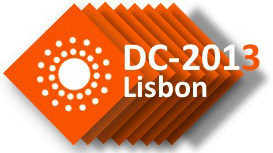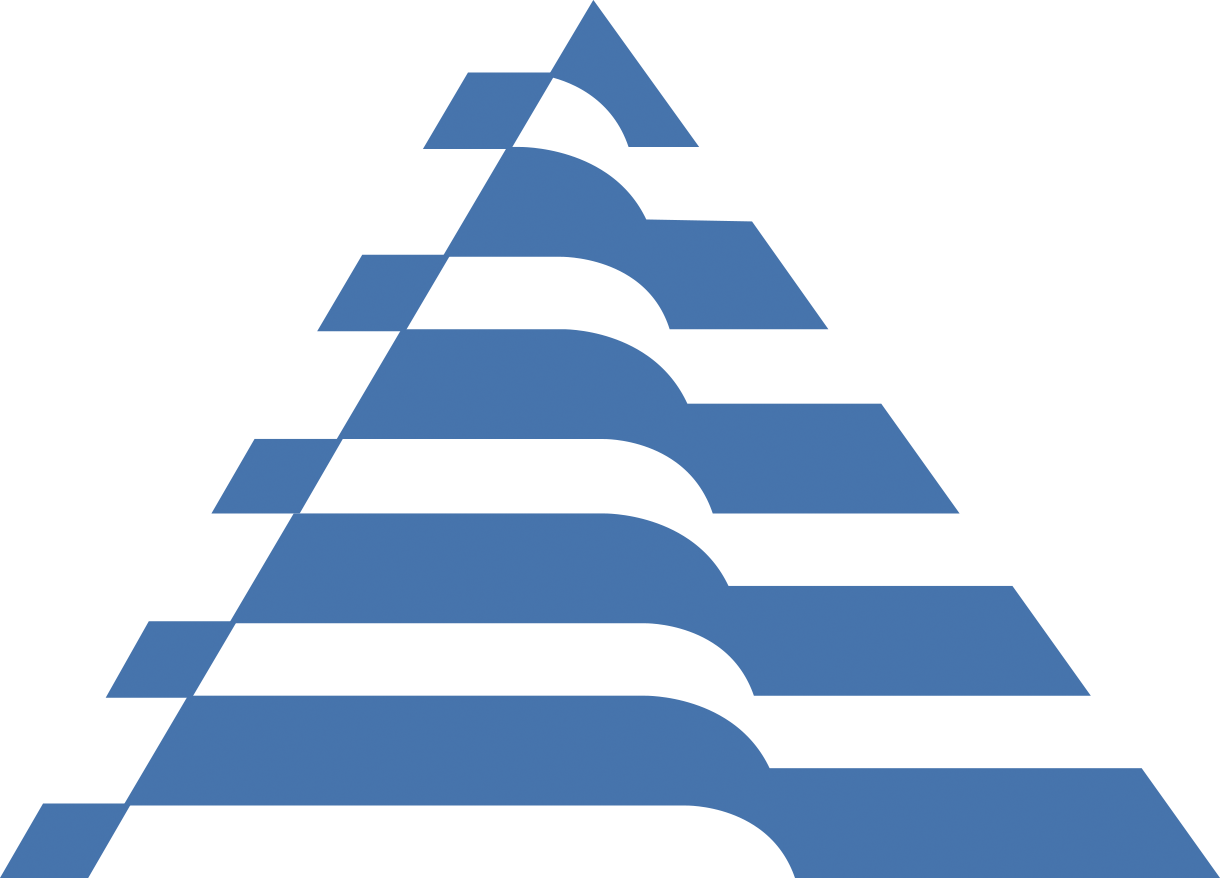
International Conference on Dublin Core and Metadata Applications:
LINKING TO THE FUTURE
2-6 September 2013, Lisbon, Portugal
DC-2013 will explore questions regarding the persistence, maintenance, and preservation of metadata and descriptive vocabularies. The need for stable representations and descriptions spans all sectors including cultural heritage and scientific data, eGovernment, finance and commerce. Thus, the maintenance and management of metadata is essential to address the long term availability of information of legal, cultural and economic value.
On the web, data—and especially descriptive vocabularies—can change or vanish from one moment to the next. Nonetheless, the web increasingly forms the ecosystem for our vocabularies and our data. DC-2013 will bring together in Lisbon the community of metadata scholars and practitioners to engage in the exchange of knowledge and best practices in developing a sustainable metadata ecosystem.
DC-2013 will be collocated and run simultaneous with « iPRES 2013 » providing a rich environment for synergistic exploration of issues common to both communities.
DEADLINES & IMPORTANT DATES:
- EXTENDED Submission Deadline: 5 April 2013
- Author Notification: 7 June 2013
- Final Copy: 5 July 2013
Start here to submit a paper to this conference:
« STEP ONE OF THE SUBMISSION PROCESS »
Beyond the conference theme, papers, reports, and poster submissions are welcome on a wide range of metadata topics, such as:
- Metadata principles, guidelines, and best practices
- Metadata quality (methods, tools, and practices)
- Conceptual models and frameworks (e.g., RDF, DCAM, OAIS)
- Application profiles
- Metadata generation (methods, tools, and practices)
- Metadata interoperability across domains, languages, time, structures, and scales
- Cross-domain metadata uses (e.g., recordkeeping, preservation, curation, institutional repositories, publishing)
- Domain metadata (e.g., for corporations, cultural memory institutions, education, government, and scientific fields)
- Bibliographic standards (e.g., RDA, FRBR, subject headings) as Semantic Web vocabularies
- Accessibility metadata
- Metadata for scientific data, e-Science and grid applications
- Social tagging and user participation in building metadata
- Usage data (paradata/attention metadata)
- Knowledge Organization Systems (e.g., ontologies, taxonomies, authority files, folksonomies, and thesauri) and Simple Knowledge Organization Systems (SKOS)
- Ontology design and development
- Integration of metadata and ontologies
- Search engines and metadata
- Linked data and the Semantic Web (metadata and applications)
- Vocabulary registries and registry services
Submissions
- All submissions for papers, reports, extended poster abstracts, community workshops, special session and tutorials must do so through the DCMI Peer Review System (see the "Step one of the submission process" link above).
- Author registration with the peer review system and instructions for the submission process appear under the "Information for Authors".
- All submissions must be in English.
- All paper, report, and extended poster abstract submissions will be peer-reviewed by the International Program Committee.
- Unless previously arranged, accepted papers, project reports and posters must be presented in Lisbon by at least one of their authors.
Submissions for Asynchronous Participation
With prior arrangement, a few exceptional papers, project reports and extended poster abstracts will be accepted for asynchronous presentation by their authors. Submissions accepted for asynchronous presentation must follow both the general author guidelines for submission as well as the following additional instructions:
- Length of videos:
- Papers and project reports range from 15-20 minutes
- Posters range from 5-10 minutes
For exact instructions for screencast preparation and submission, see: «http://dcevents.dublincore.org/IntConf/index/pages/view/remote». Remote authors presenting asynchronously and conference delegates will have the opportunity to interact online during the the assigned conference session.
Publication
- Accepted papers, project reports and poster abstracts will be published in the official Conference Proceedings at «http://dcpapers.dublincore.org/» within 2 months of the close of the conference. The full proceedings will also be published here on the conference website the first day of the conference.
- Special session and community workshop session abstracts will be published and made permanently available in the online conference program only.
- Papers, research reports and poster abstracts must conform to the appropriate formatting template available through the DCMI Peer Review System.
- Submitting authors in all categories must provide basic information regarding current professional positions and affiliations in the submission metadata as a condition of acceptance and publication.
Submission Categories
FULL PAPERS (8-10 pages; Peer-reviewed)
Full papers either describe innovative work in detail or provide critical, well-referenced overviews of key developments or good practice in the areas outlined above. Full papers will be assessed using the following criteria:
- Originality of the approach to the topic and potential for implementation
- Quality of the contribution to the implementation community
- Significance of the results presented
- Clarity of presentation
PROJECT REPORTS (4-5 pages; Peer-reviewed)
Project reports describe a specific model, application, or activity in a concise presentation. Project reports will be assessed using the following criteria:
- Conciseness and completeness of technical description
- Usability of the technical description by other potential implementers
- Clarity of presentation
POSTERS (1-2 pages; Peer-reviewed)
Posters are for the presentation of projects or research under development or late-breaking results. Poster submissions should consist of a one-two page extended abstract. Posters will be assessed using the following criteria:
- Concise statement of research or project goals and milestones
- Significance of the research or project
- Framing of key barriers and future research
- Statement of results and accomplishments
- Clarity of presentation
One or more sessions will be scheduled for display and discussion of posters at the conference venue. Instructions on the preparation of the display poster can be found at «http://dcevents.dublincore.org/index.php/IntConf/index/pages/view/posterAuthors»
SPECIAL & PANEL SESSIONS
Special and panel sessions are organized by experts in a specific area of metadata. Each special session serves as a focused exchange of the latest research and/or best practice in the area. A proposal for a special session consists of a single document of approximately 800-1,200 words in length containing:
- Session title
- 35-50 word abstract for use in promoting the session
- Brief description of the scope and motivation for the session
- Names and brief CVs of session facilitators, presenters, or panelists
- Brief CVs of the organizers (if different from #4 above)
TUTORIAL SESSIONS
Proposed tutorials must be on a single topic, addressed at either an introductory level or an in-depth, expert level. Submissions, for tutorials should include a brief abstract and an outline of the content, the duration (half-day 3 hours or full-day 6 hours), a description of the intended audience and a specific listing of the expected learning outcomes, and a short biography of the presenter(s).
Selection of tutorials for presentation are determined by the Conference Committee based on the following criteria:
- Potential interest by potential delegates to the conference; and
- Alignment of the content with one of the current DCMI Work Themes described at « http://dublincore.org/#workThemes ».
DCMI COMMUNITY & TASK GROUP WORKSHOP SESSIONS
DCMI Community Workshop & Task Group Sessions are intended to: (1) advance the specific work of DCMI entities as defined at «http://dublincore.org/groups/#communities»; and (2) to set the work agenda for the Community or Task Group for the coming year. Note: Communities wanting to present a special session or a panel in the area of the Community's interest should submit a proposal under Special & Panel Sessions above.
PROGRAM COMMITTEE CHAIRS
- Kai Eckert
- Research Group Data and Web Science, University of Mannheim, Germany
- Muriel Foulonneau
- Knowledge Intensive Systems and Services, Tudor Research Centre, Luxembourg
Author Guidelines
Full papers, project reports and poster abstracts are accepted for publication in the DC-2013 Conference Proceedings. Submissions for review may be submitted using Open Office (.odf), Microsoft Word (.doc) or Rich Text Format (.rtf).
In order to guarantee readability and uniformity of appearance, authors are expected to use the specifications in in the table below in formatting their submissions. An MS DOC template is available as well as a PDF illustrating the specifications:
Reference to the « published proceedings for DC-2012 » may be of further assistance with matters of document formatting.
Maximum submission length for each category of submission as well as evaluation criteria are set out in the Call for Papers at « http://dcevents.dublincore.org/IntConf/dc-2013/schedConf/cfp » .
DCMI adheres to a blind peer review process in which reviewer identities are unknown to authors. It does not use a double-blind review process; therefore, author identities are known to reviewers.
Submission Formatting Specification
- Page size: ISO A4 (8.27 in x 11.69 in / 21 cm x 29.69 cm)
- Top and bottom margins: 1.18 in / 3 cm
- Left margin: 1.14 in / 2.9 cm
- Right margin: 1.13 in / 2.87 cm
- Header from top: .5 in /1.27 cm
The resulting single text column is 6 in / 15.23 cm
| Template Tag | Font | Size | Spacing |
|---|---|---|---|
| Header | Times Roman | 11 pt, Italic | Alignment: Centered Space before: 0 pt Space after: 0 pt Spacing: Single |
| Title | Arial | 14 pt, Bold | Alignment: Centered Space before: 12 pt Space after: 3 pt Spacing: Single |
| Author | Times Roman | 12 pt | Alignment: Centered Space before: 0 pt Space after: 0 pt Spacing :Single |
| Heading Abstract | Arial | 12 pt, Bold | Alignment: Justified Space before: 0 pt Space after: 0 pt Spacing: Single |
| Abstract | Times Roman | 11 pt | Alignment: Justified |
| Heading 1 | Arial | 12 pt, Bold | Alignment: Left Space before: 12 pt Space after: 6 pt Spacing: Single |
| Heading 2 | Arial | 11 pt, Bold | Alignment: Left Space before: 12 pt Space after: 3 pt Spacing: Single |
| Para Normal | Times Roman | 11 pt | Alignment: Justified Indent: first line: 0in/0cm Space before: 0 pt Space after: 0 pt Spacing: Single |
| Para Indent | Times Roman | 11 pt | Alignment: Justified Indent first line: .16in/.41cm Space before: 0 pt Space after: 0 pt Spacing: Single |
| Quotation | Times Roman | 11 pt | Alignment: Justified Indent right: .25 in/.635cm Indent left: .25 in/.635cm Space before: 3 pt Space after: 0 pt Spacing: Single |
| Caption Label | Times Roman | 9 pt | Alignment: Centered Space before: 0 pt Space after: 0 pt Spacing: Single |
Submissions for this conference were closed on 2013-08-27.
![]() DCMI's work is supported, promoted and improved by « Member organizations » around the world:
DCMI's work is supported, promoted and improved by « Member organizations » around the world:
 |  |  |
 |  |  |
 |  |  |
 |  |  |
 |
![]() DCMI's annual meeting and conference addresses models, technologies and applications of metadata
DCMI's annual meeting and conference addresses models, technologies and applications of metadata


